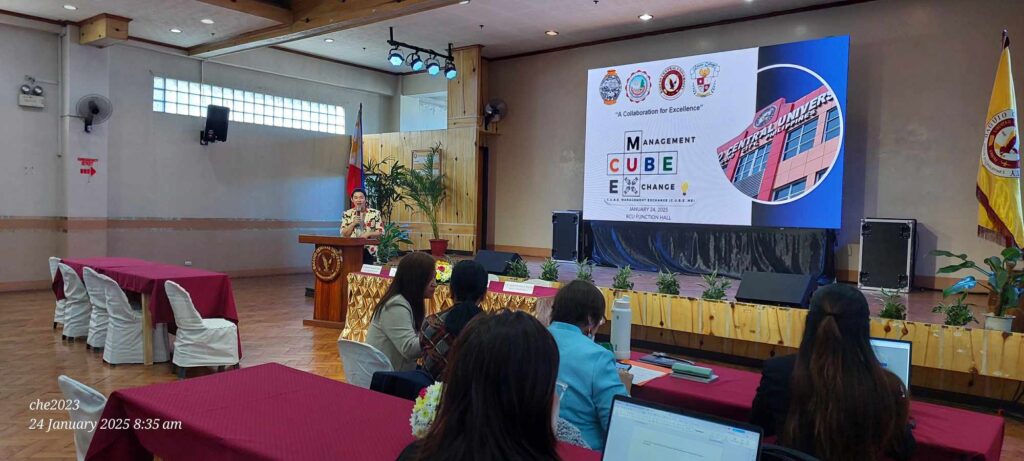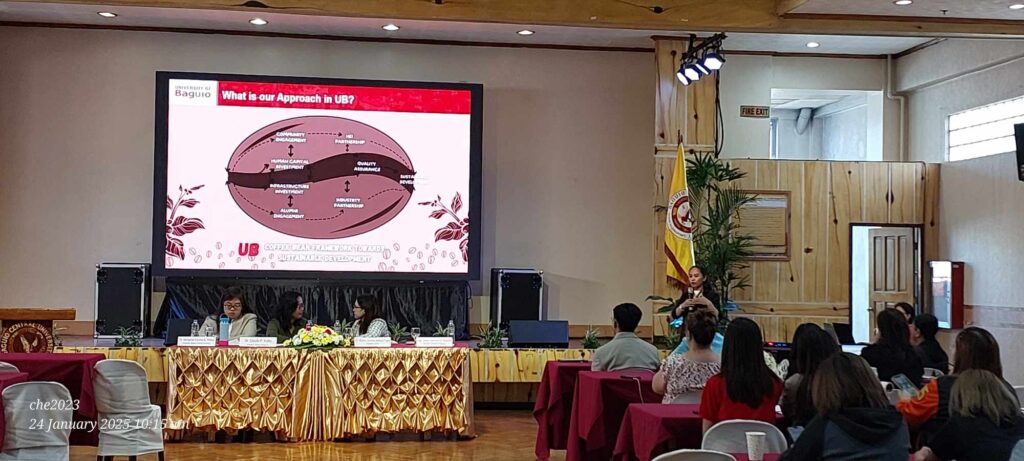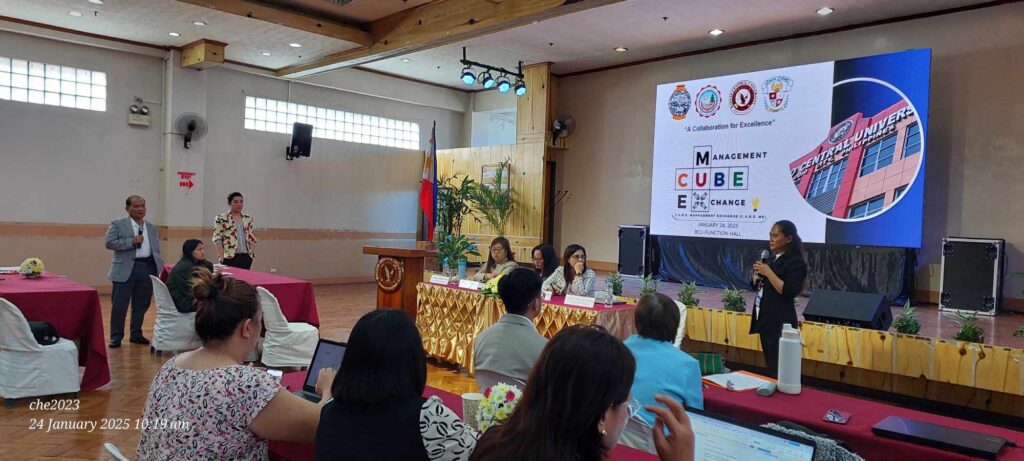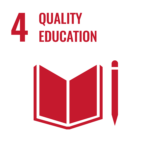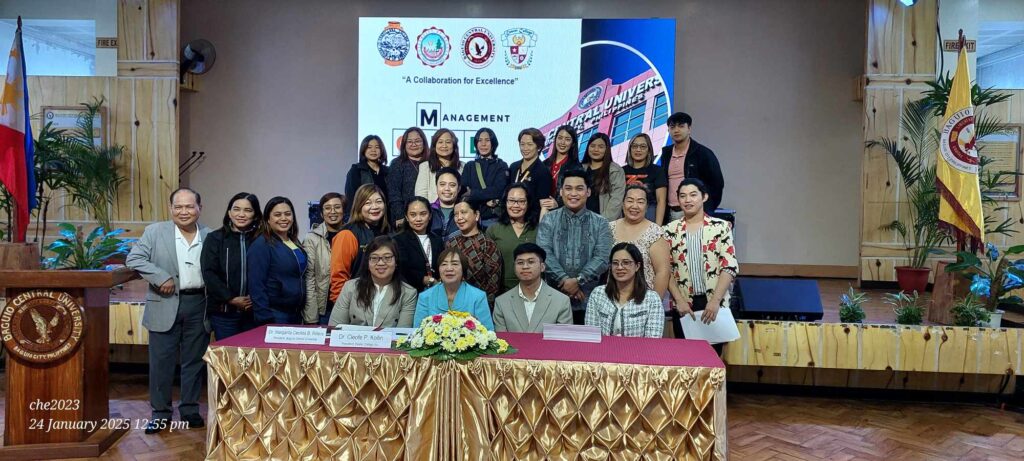
“A Collaboration for Excellence”
The CUBE Management Exchange, held on January 24, 2025, at Baguio Central University, brought together representatives from the Cordillera Career Development College (CCDC), University of Baguio (UB), Baguio Central University (BCU), and Easter College Inc. (ECI). Hosted by Baguio Central University, the event served as a platform for the sharing of best practices in the areas of research, extension, and quality assurance. Participants included university presidents, directors, and coordinators for research and extension, all committed to fostering collaboration among partner higher education institutions (HEIs). The exchange aimed to strengthen partnerships and promote a shared vision of producing graduates equipped to lead in their communities while maintaining and sustaining institutional quality assurance.
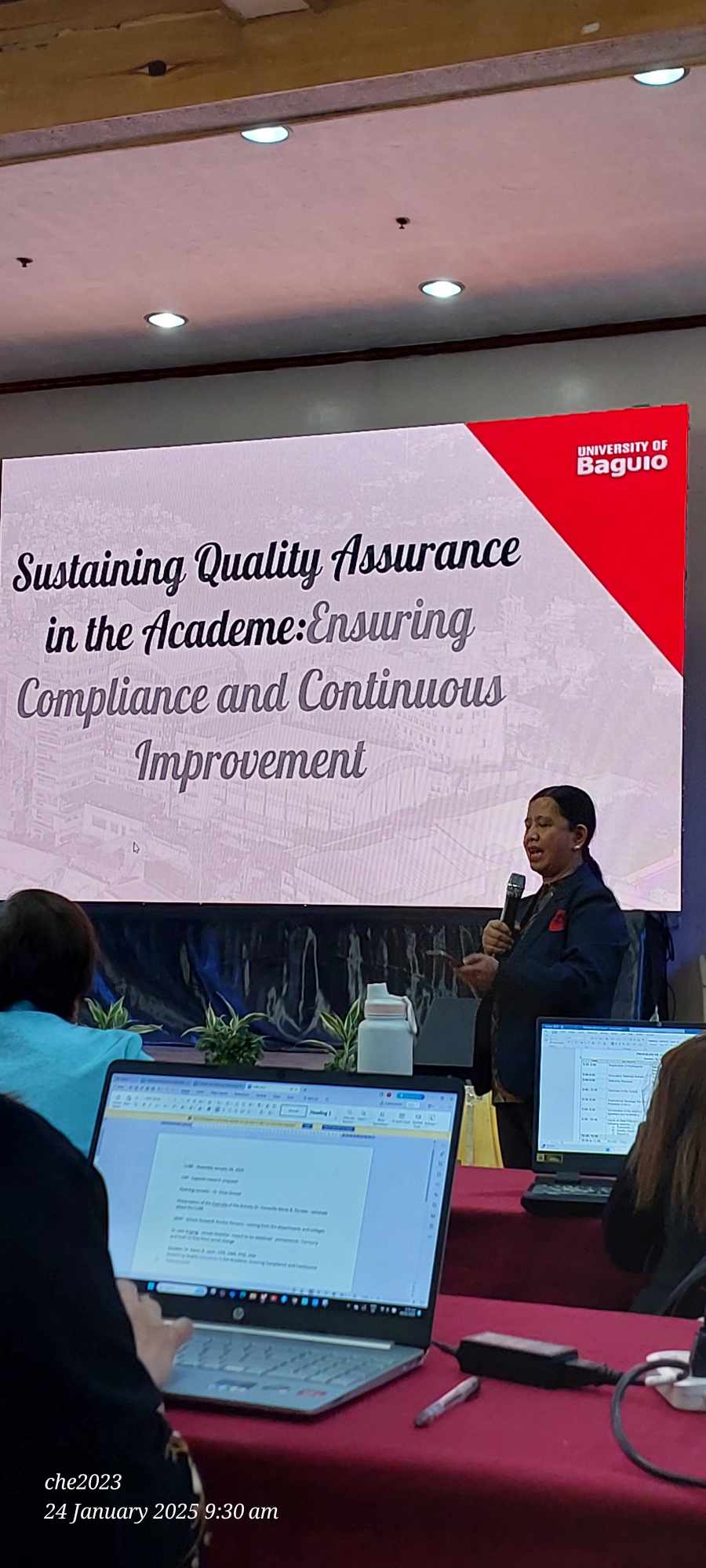 One of the event’s highlights was a presentation by Dr. Kareen Leon, who detailed the University of Baguio’s (UB) initiatives for upholding quality assurance through various programs and activities. She emphasized the principle that “Quality is Everybody’s Responsibility,” underscoring the need for inclusive planning and consultation involving all stakeholders, specifically the students, faculty, non-teaching staff, alumni, and external partners. Dr. Leon further discussed the value of multiple-input feedback, benchmarking with other universities, and the application of the PDCA Cycle (Plan-Do-Check-Act) as a framework for aligning institutional objectives with desired outcomes.
One of the event’s highlights was a presentation by Dr. Kareen Leon, who detailed the University of Baguio’s (UB) initiatives for upholding quality assurance through various programs and activities. She emphasized the principle that “Quality is Everybody’s Responsibility,” underscoring the need for inclusive planning and consultation involving all stakeholders, specifically the students, faculty, non-teaching staff, alumni, and external partners. Dr. Leon further discussed the value of multiple-input feedback, benchmarking with other universities, and the application of the PDCA Cycle (Plan-Do-Check-Act) as a framework for aligning institutional objectives with desired outcomes.
Moreover, Dr. Donnavila Marie B. Panday of UB shared insights into the university’s approach to conducting extension programs and integrating them with research initiatives. She highlighted the importance of collaboration with local government units (LGUs) to ensure compliance with government policies and guidelines. She also introduced UB’s Coffee Bean Framework, which emphasizes starting all institutional growth efforts from a “zero point” and progressing through internal components such as human capital investment in management, faculty, staff, and students, infrastructure development, and external components like partnerships with alumni, the community, other HEIs, and industry partners. Also, Dr. Panday stressed the interdependence of research and extension, noting that research serves as the foundation for identifying community needs, which ensures that extension programs are meaningful and sustainable.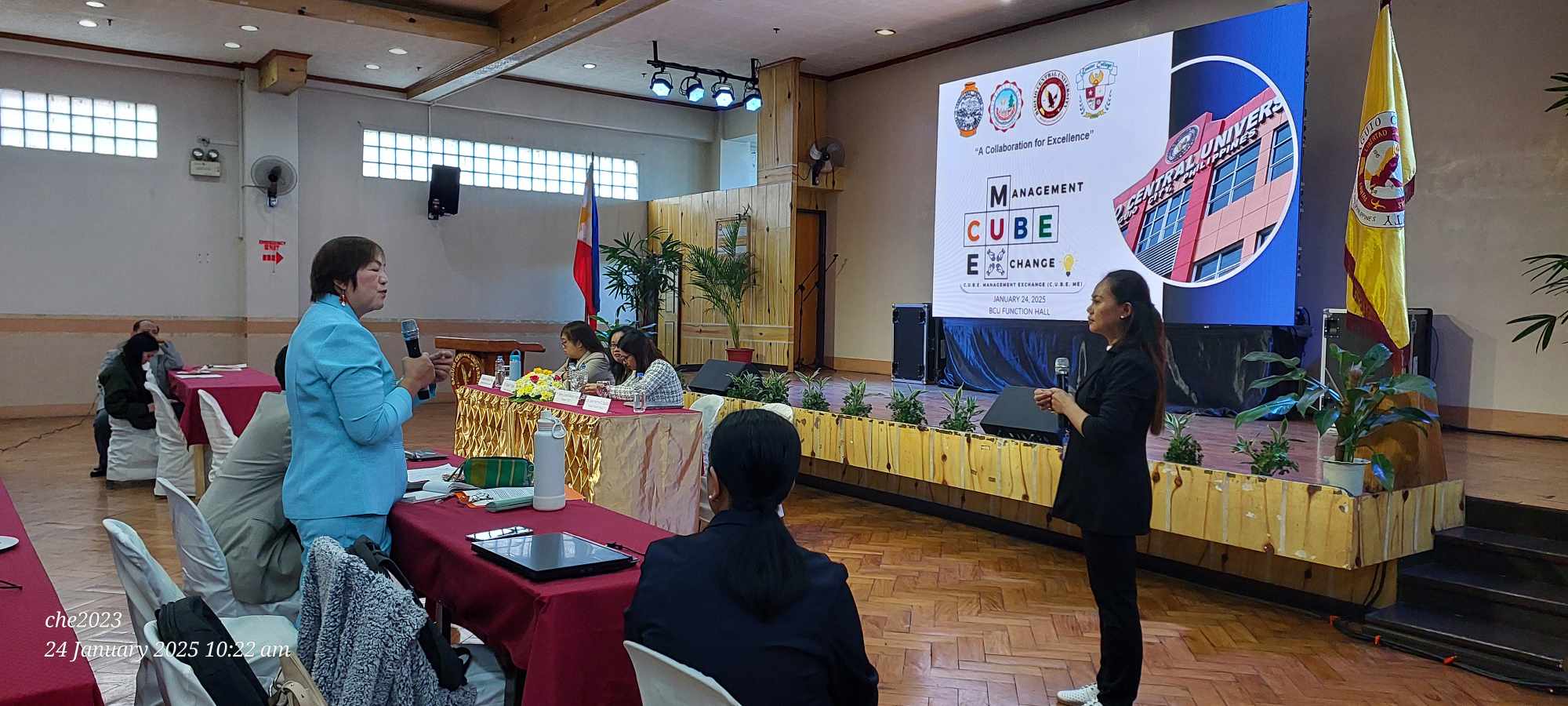
Additionally, representatives from BCU, Dr. Michael Tomas Sebullen, CCDC, Dr. Corazon L. Ocden, and ECI, Ms. Jessica W. Balag-ey, shared their best practices, focusing on enhancing research capabilities through mentoring and training programs for stakeholders. They emphasized the importance of collaboration and partnerships with government agencies to secure resources and strengthen institutional research efforts. A common theme among the presentations was the shared commitment to advancing research and extension programs to better serve their communities.
Apart from the presentations, participants also engaged in a collaborative group activity aimed at identifying common challenges in research, extension, and quality assurance. This activity provided a platform for discussion and resulted in the development of a position paper proposing a feasible project that could be achieved through joint efforts from the four school. Several programs were identified, with the commitment to implement these initiatives before the expiration of the signed partnership between CCDC, UB, BCU, and ECI.
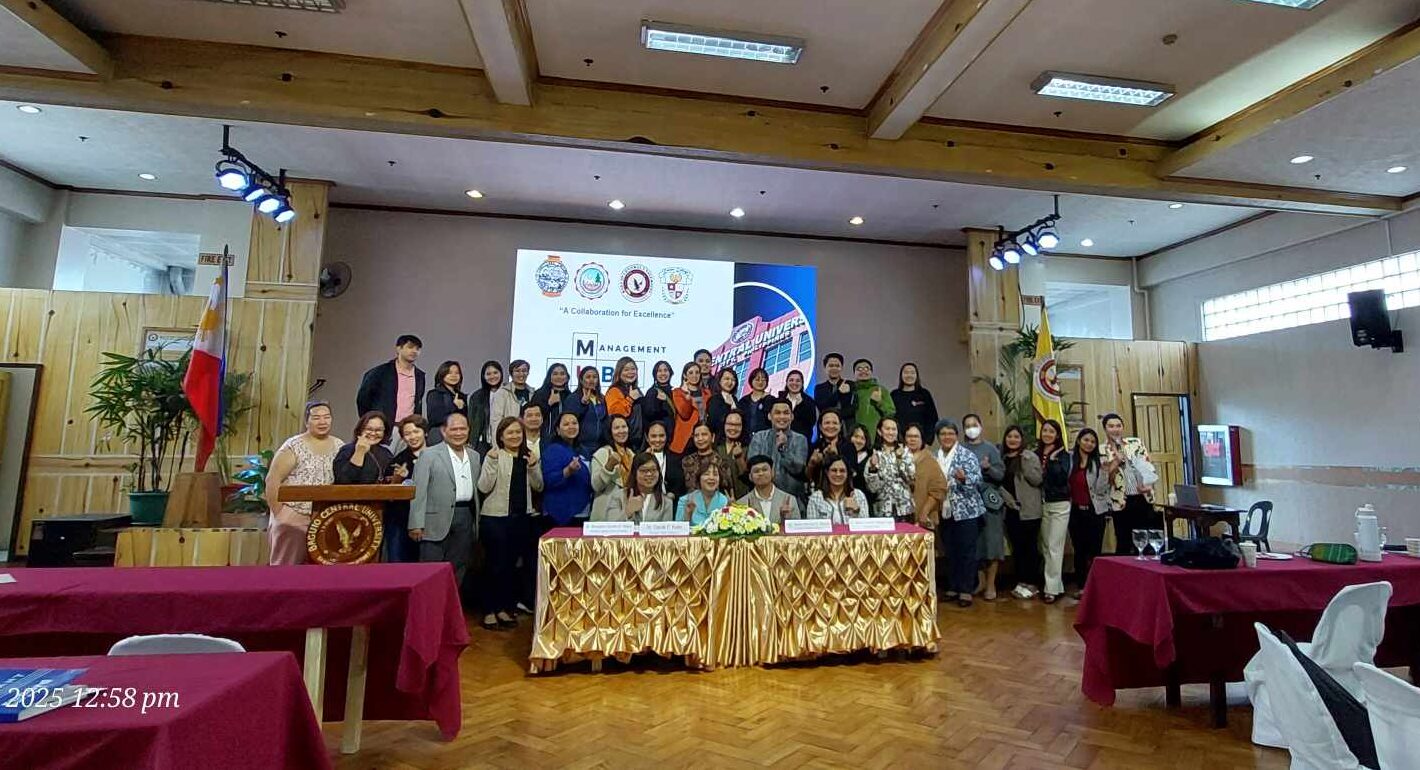 The event concluded with a renewed sense of collaboration and shared responsibility among the participating institutions. Most importantly, it highlighted the importance of innovation, teamwork, and collective action in addressing challenges and driving continuous improvement in research, extension, and quality assurance across Higher Education Institutions.
The event concluded with a renewed sense of collaboration and shared responsibility among the participating institutions. Most importantly, it highlighted the importance of innovation, teamwork, and collective action in addressing challenges and driving continuous improvement in research, extension, and quality assurance across Higher Education Institutions.
